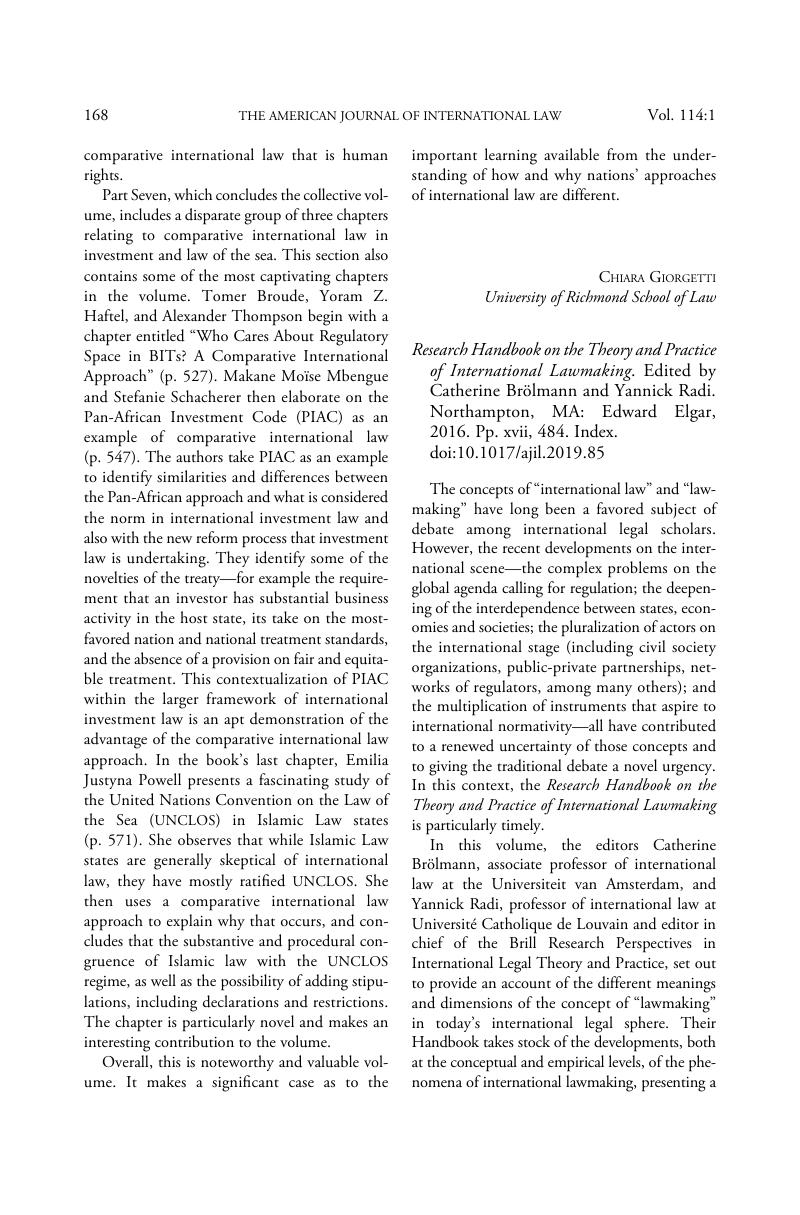Published online by Cambridge University Press: 17 January 2020

1 See O'Connell, Mary Ellen, New International Legal Process, 93 AJIL 334 (1999)CrossRefGoogle Scholar.
2 Joost Pauwelyn, Ramses A. Wessel & Jan Wouters, Informal International Lawmaking 15–22 (2012). See also d'Aspremont, Jean, The Politics of Deformalization in International Law, 3 Goeettingen J. Int'l L. 503 (2011)Google Scholar.
3 The expression is from Bruno Simma and Philip Alston, The Sources of Human Rights Law: Custom, Jus Cogens, and General Principles, 12 Australian Textbook Int'l L. 82, 83 (1988–1989).
4 Anne-Marie Slaughter, A New World Order (2004).
5 For a defense of the language of “participants,” see McCorquodale, Robert, An Inclusive International Legal System, 17 Leiden J. Int'l L. 477 (2004)CrossRefGoogle Scholar; McCorquodale, Robert, Sources and the Subjects of International Law: A Plurality of Law-Making Participants, in The Oxford Handbook of the Sources of International Law 749 (Besson, Samantha & d'Aspremont, Jean eds., 2017)Google Scholar.
6 For an account of this evolution, see Raustiala, Kal, The Architecture of International Cooperation: Transgovernmental Networks and the Future of International Law, 43 Va. J. Int'l L. 1 (2002)Google Scholar.